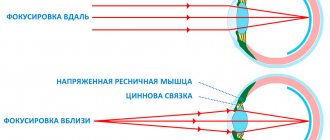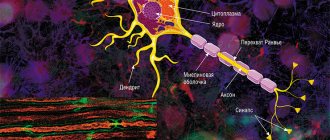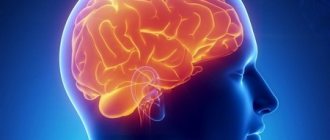A nervous breakdown is often referred to as a nervous disorder that can be caused by psychological stress, prolonged stress, or some kind of psychological trauma. For example, this condition often develops in people as a result of strong feelings, overwork, unhappy everyday life, resentment, and unfulfilled desires. The reasons may be different, but the main criterion for a nervous breakdown is a prolonged stay in a certain situation that does not please the individual and depletes his energy and strength.
The term "nervous breakdown" has not been officially recognized in diagnostic systems such as DSM-IV as well as ICD-10, and in fact is absent from modern scientific literature. Although a nervous breakdown is not precisely defined, lay research suggests that the term specifically refers to a temporary, reactive, acute disorder with symptoms of depression and neurosis, which is usually often facilitated by external stimuli.
Sometimes cases described as a nervous breakdown refer to an individual after he or she loses his or her composure in everyday life for any reason.
Treatment in hospital
To begin treatment, it is necessary to make an appointment for a consultation. The doctor will conduct an initial conversation to determine how advanced the disease is. It is determined through diagnostics, a picture is drawn up, and a clear diagnosis is established. After this, the necessary research is carried out. The patient takes tests. A neuroscience program is being drawn up.
The complex may vary. He wears an individual subtype. Advanced syndromes require prolonged exposure. Drugs and medications are used. This is followed by a long period of rehabilitation and adaptation to society.
All actions are carried out under the supervision of professionals. All conditions are created for the fastest possible recovery. He can communicate with doctors and psychologists at any time.
Complexes
For each individual, an individual men’s recovery program is drawn up, which involves the following actions:
- formation of useful habits;
- normalization of diet;
- setting up a daily routine;
- regular walks in the fresh air;
- playing sports;
- massage treatments;
- group sessions;
- adaptation in society;
- prevention;
- meditation;
- application of various techniques.
As a result, a positive worldview is formed. He learns to independently deal with anxiety and depression that arise when in contact with others. Methods for resolving conflicts are being sought. This can only be achieved under the guidance of professionals who will select the optimal method of struggle.
Features of treatment
Women's neuroses, as a rule, are more severe. If the syndrome is present, males also experience complications that can lead to alcohol and drug addiction. Includes the following manifestations:
- depression, weakness;
- cardiopalmus;
- redness, flushing of the face;
- decreased physical and sexual activity;
- deterioration of memory processes;
- performance is lost.
Men are less susceptible, but they have a deep damage radius. If nothing is done, further aggravation is possible, which can lead to unpleasant consequences that are dangerous to life and well-being.
Origin and causes of male neurosis
This is a serious illness that occurs in the form of damage to the nervous system. Usually manifests itself as a result of psychological trauma. Development is influenced by the environment and the general emotional background. Over time, the situation worsens, which can lead to pathology and heart defects. Headaches and painful sensations in the body and muscles occur.
If you do not take any action, it is impossible to improve the patient's condition. It is necessary to identify the sources, gradually eliminate them, and change the situation. Then psychotherapy techniques will be effective.
Basically, development is associated with various factors. There is a dependence on genetic predisposition, formed habits, moral and life principles, and worldview.
The adequacy and correctness of the assessment is important. This affects the ability to act in complex incidents, adequately assess what is happening and make appropriate decisions. The manifestation is not new. More than forty-five percent of the country's population suffers from this. More than five of them are severe.
There are several types:
- obsessive-compulsive neurosis;
- hysterical neurosis;
- neurasthenia.
Each of them is formed under the influence of external and internal factors. Psychoses of internal organs also exist. They are a special type of neuroses in men and somatic disorders under the pressure of trauma. It is a subtype of mania. If the malaise developed at a conscious age, the consequences are reversible. Achieved through intensive therapy.
Experts note that the origins lie in childhood experiences and anxieties. Other factors include:
- improper upbringing on the part of parents - excessive demands, inattention to the child’s abilities, lack of trust;
- stress on the nervous system, constant tension;
- unfavorable emotional environment, worsening mood;
- character traits; physical injuries, disorders, chronic poor health.
If nothing is done, the neurotic quality will gradually worsen. The person will begin to experience anxiety, dissatisfaction, and decreased activity. The following signs are possible:
- passivity;
- depression;
- irritability;
- uncertainty;
- nervousness;
- active apathy;
- complaints about existence;
- alertness;
- aggressiveness;
- constant fatigue and more.
The pleasure of existence is lost. Everything turns gray. The individual cannot work and function normally. The disease will develop, progress, reaching a critical point. This can lead to physical problems.
To avoid this, it is recommended to seek help from a psychologist in the early stages. He will prescribe medications that will help overcome chronic suspiciousness.
“What’s happening to me?”: 16 signs of a nervous breakdown that require help
Author:
Bondar Yulia
3 minutes
11459
Although the term was once used to refer to a wide range of mental illnesses, in modern medicine there is no such “diagnosis” anymore.
However, the so-called "nervous breakdown" remains a symptom of mental disorders such as depression, anxiety disorder, and post-traumatic stress disorder, or PTSD. It may accompany the acute phase of a particular disorder.
16 signs of a nervous breakdown
Because the condition is not associated with any specific disease, a nervous or mental breakdown does not have any specific symptoms other than the inability to function “as usual.” And this normal mode of functioning varies markedly across cultures, regions, and even families. However, there are 16 common symptoms typical of this condition:
- feeling anxious, depressed, tearful, or irritable;
- feeling of helplessness, hopelessness;
- low self-esteem;
- avoidance of normal social situations;
- sleep problems – insomnia or excessive sleepiness;
- craving for unhealthy habits and problems with hygiene;
- difficulties with concentration and memory;
- emotional or physical exhaustion, often without external cause;
- lack of motivation and interest in life;
- inability to derive pleasure or satisfaction from things that previously brought joy or satisfaction;
- unexplained pain and general malaise;
- difficulties communicating with other people;
- suicidal thoughts or thoughts of self-harm;
- lack of interest in sex;
- slowness;
- frightening memories, nightmares, panic attacks.
In extreme cases, especially in mental conditions associated with psychosis, symptoms may also include hallucinations, paranoia, and delusions.
When to see a doctor
You should talk to your doctor as soon as physical or emotional stress begins to interfere with your daily life or normal activities. But, unfortunately, often people experiencing a so-called nervous breakdown cannot recognize its symptoms, nor understand that they need professional help.
Unfortunately, many people are reluctant to seek mental health help due to fear of being judged. They may also believe that everything that happens to them is their own fault and that they cannot be helped.
If your close friend or relative is showing one or more signs of a nervous breakdown, they should be encouraged to seek medical help.
Treatment and prevention
There are several ways that can help reduce symptoms of emotional and physical stress. Common treatment and prevention strategies for nerve disorder include:
- counseling, usually cognitive behavioral therapy;
- reducing or eliminating sources of stress such as conflicts at home or in the workplace;
- exercises to maintain mental and physical relaxation, such as deep breathing and meditation;
- 20 minutes of moderate-intensity exercise daily, or 10 minutes of vigorous-intensity exercise daily;
- hobbies that encourage getting outside;
- communication with friends, family, partners about your feelings and emotions;
- establishing and maintaining a strict daily routine, special attention to hygiene, sleep and nutrition;
- finding local or online support groups for people with similar symptoms;
- creating a zone of special calm without distractions to improve sleep quality
- avoidance of caffeine, alcohol and nicotine
The use of antidepressants or antipsychotic drugs may be effective, but should only be prescribed by a doctor.
Causes and risk factors
Anything that causes increased emotional and physical stress can lead to nervous breakdown or cause symptoms of a “nervous breakdown.” But there are certain situations, genetic factors and experiences that are more likely to be associated with a nervous or mental disorder than others.
Causes and risk factors for nervous disorders include:
- intense grief;
- traumatic experience;
- being in an abusive relationship;
- high stress at work;
- emotional burnout at work;
- family history of mental disorders;
- insulation;
- serious social conflict, especially if it affects work and home life;
- severe or chronic illness or injury.
Neurosis - symptoms and treatment
Treatment of neuroses is divided into two methods - psychotherapy and pharmacotherapy. The most optimal results can be achieved with a complex combination of two methods.
The need to introduce pharmacological agents, in particular psychotropic substances, arose due to the impossibility of providing high-quality psychotherapeutic assistance to everyone. Summarizing my experience in treating neuroses, I can say that very often the use of drugs is very helpful in starting treatment. This is applicable and indicated for those patients who at first find it very difficult to open up to the doctor; they consider their life to be already prosperous. Over time, while they take the drugs, they feel an improvement and then more willingly agree to psychocorrection.
And now there are supporters of only a psychotherapeutic or only a pharmacotherapeutic approach. It seems more rational to determine an individual treatment plan in each specific situation. Since we are talking about psychotrauma as a starting point, not a single case of neurosis can do without psychotherapy. Whereas many patients do not need to be prescribed medications.
Pharmacotherapy
Of all the psychotropic drugs, tranquilizers have become the most popular in the treatment of neuroses. Now there are a huge number of them on the market, and if necessary, the doctor will determine the one that is suitable for a particular patient.
Tranquilizers allow you to achieve many positive goals:
- reduce the emotional excitability of patients;
- improve sleep: patients fall asleep better, sleep quality improves;
- reduce vegetative manifestations of neurosis;
- reduce irritability and nervousness.
In addition, neuroleptics, antidepressants, and various psychostimulants can be used for treatment among psychotropic drugs. General strengthening drugs (vitamins, nootropics, neuroprotectors) are widely used.[9]
The course of treatment is individual and is selected depending on the degree of influence of biological factors on the occurrence of the disease. Drugs are selected taking into account the characteristics of the patient, the intensity of symptoms and types of neurotic syndromes.
Psychotherapy
It is well known and constantly confirmed in practice that most patients are completely unaware of the significance of many life situations and circumstances that in one way or another led to the disease. At the initial appointment, patients declare the well-being of their lives, even while presenting typical neurotic complaints.
This is due, on the one hand, to the conscious attitude “not to think about bad things” and ignorance of the possible degree of influence of psychological and social factors. On the other hand, often doctors of clinical specialties, whose field of view includes patients with neuroses, do not have sufficient qualifications to identify these factors.
The goal of psychotherapy is for the patient to understand the impact of traumatic situations on his illness. This is an important component of treatment. It is necessary to change a person’s attitude towards those situations, to give him new experience and to gain experience for the future. Often it is necessary to remove the patient from “his childish position”, which manifests itself in the use of childish ways of responding. Neuroscientists have proven that the neural pathways of reaction and formation of emotions are formed in humans before the age of seven.[10] Accordingly, our task is to expand the ways we respond. To get results, you need to change your life.
Psychoanalysis, person-oriented therapy, and suggestive (suggestion) psychotherapy were previously used as a method of psychotherapy. Today we have a much greater variety of techniques: neuro-linguistic programming, body-oriented therapy, systemic psychotherapy, metaphorical associative maps, personal and program-oriented coaching. It should be remembered that often it is a combination of different methods that gives effectiveness.
Breathing exercises and massage
Breathing exercises and massage are effective in treating neurosis, but they are additional means. They, like other treatment methods, are prescribed by the attending physician. He explains to the patient what kind of breathing exercises, how often and for how long to perform, and most importantly, why it is needed and what effect should be expected from it.
Folk remedies
The effectiveness and safety of traditional medicine methods have not been scientifically proven. Before taking sedative herbal remedies, you should consult your doctor.
How to help a loved one with neurosis
The participation of loved ones in therapy is also determined by the attending physician; in the treatment of neurosis, by a psychotherapist. The doctor will explain how family members will help.
Diet and lifestyle recommendations
For neurosis, universal methods of general nonspecific prevention are recommended:
- reasonable work and rest schedule;
- balanced mental and physical activity;
- getting enough sleep at night;
- good nutrition;
- active and varied leisure time.
When treating neuroses, diet is not important. It will be useful to eat regularly and balanced.









